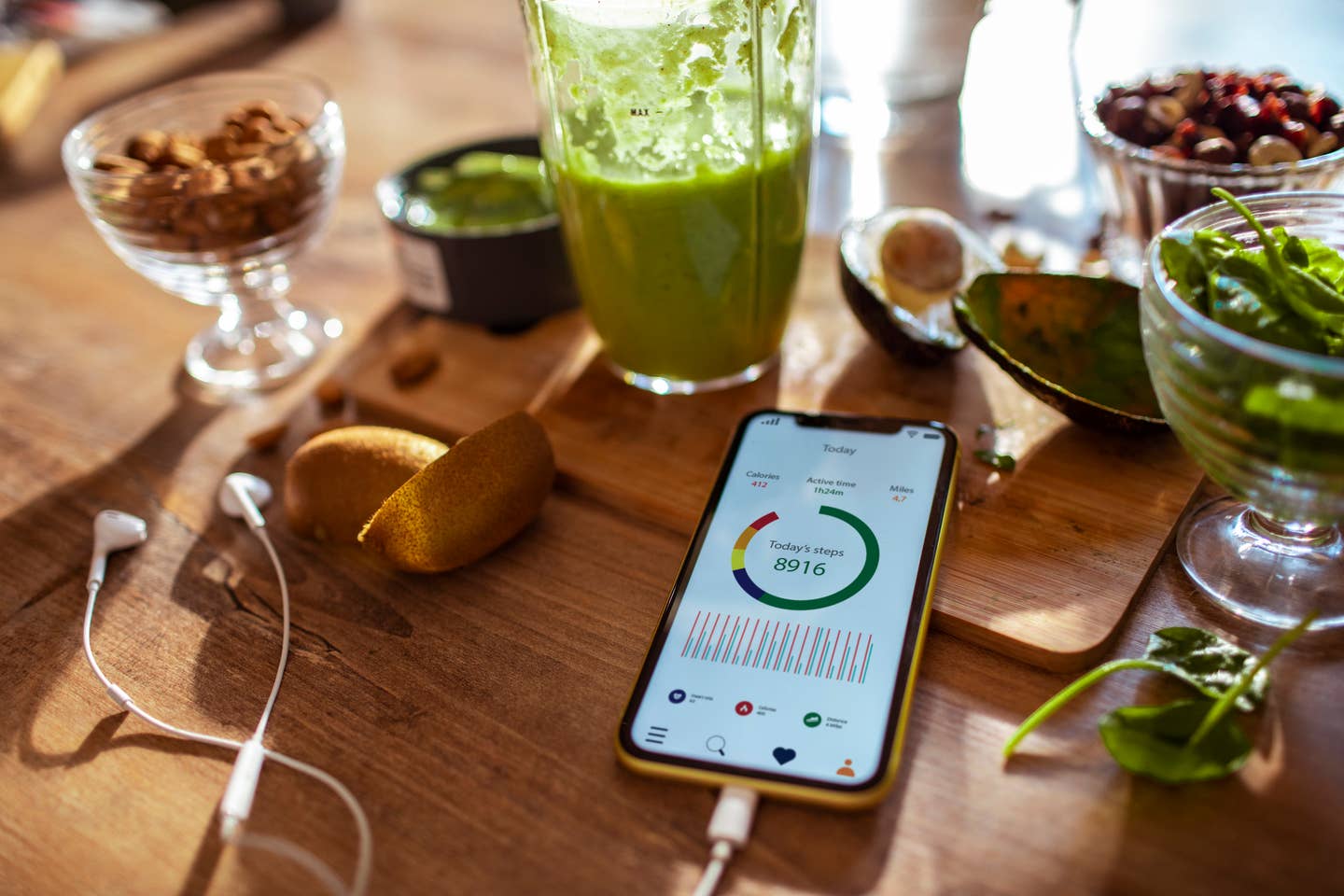
To Reach Your Healthy Body Goals, Studies Show, Optimism Works
What if I told you all you needed to reach your healthy body goals, lose weight, or get heart-healthier was a positive mental attitude? (PMA for short). Mounting research from Harvard and other reputable sources has shown that one key to achieving your healthy-living goal is believing that the steps you are taking to achieve that healthy body (lower cholesterol, leaner, stronger muscles) are working, and even if you can't see it, that you are making progress. Optimism comes in many forms, the research shows, but one thing is to see your mishaps as part of the process and not take negative events too personally.
It makes perfect sense since if you "cheat" on a diet, whether it's with unhealthy heart-clogging fettucini alfredo or a pint of Ben & Jerry's dairy-free ice cream if you believe you can get right back on track, you will. Whereas if you think that your fate is to have the same terrible cholesterol as your dad and everyone else around you, or that you can't shed those last five pounds, chances are you'll throw in the proverbial towel.
A growing body of evidence shows that when people are attempting to make a change in their health habits, optimism matters, as does pessimism or negative mental affect (such as depression), so if you are attempting a whole-sale health upgrade, start with your outlook.
The brain is the strongest muscle in the body, figuratively speaking
The research shows that your brain rules all, including your weight loss and heart-healthy success. On some level, it makes sense that if your "gut" is talking to your brain (and we know that the bacteria in your intestines do send signals through your bloodstream based on what you eat) then your brain is sending signals back to your gut (that the healthier you eat, the more likely you are to drop pounds, feel better, fight disease and live longer, so let's stay on track). The difference between success and failure is not willpower but optimism. Think about it: How you see those moments when the croissant wins over the fruit salad for breakfast can set the course for the whole day ahead. Your optimism is what makes the difference. Slip up? Tell yourself it doesn't matter and get back on track; If you believe, earnestly, that you are taking the positive measures you need in order to shape up and get fit, or heart-healthy then it will happen. All you need is to adopt a PMA: Positive Mental Attitude.
Consider this recent study published in the BioMedCentral journal Nutrition Journal which reveals, "Dispositional optimism is a psychological trait that has been associated with positive health outcomes such as the reduced risk of cardiovascular diseases," the authors wrote. Their objective: To assess whether optimism was associated with overall diet quality, food group consumption, and snacking.
They looked at over 32,000 people in a study on diet quality and snacking behavior and found out that optimism is tied to healthier snacking habits: "Optimism was associated with greater overall diet quality and higher consumption of fruit and vegetables," as well as whole grains, meat substitutes, legumes, fruits, and lower consumption of meat and poultry, dairy products, milk-based desserts, sugar, and candy. In addition, optimism was associated with less snacking overall. They concluded that if the goal is to get people to eat better, "optimism could be taken into account in the promotion of healthy eating behavior."
In another study, at Harvard in 2012, an analysis of 200 articles found that optimism correlates with better cardiovascular health, and may even "decrease the rate of the disease's progression."
As more cultures see longevity within their populations as the average age increases to more than 85 years and up, the study of "what makes people live longer" has become a hot area of science. This new information may indicate that having is a PMA works as well as some prescription drugs to keep you healthy longer.
According to the Harvard study, which looked at depression as well as optimism, the "absence of the negative is not the same thing as the presence of the positive," meaning that while depressed patients are often also suffering from physical ailments, just the fact that a person does not suffer from depression did not make up the full difference in their health profile.,
We found that factors such as optimism, life satisfaction, and happiness are associated with reduced risk of cardiovascular disease regardless of such factors as a person’s age, socioeconomic status, smoking status, or body weight,” according to the study's lead author Julia Boehm.
Optimistic individuals, when compared to their less optimistic counterparts, had approximately 50 percent less risk of an initial cardiovascular event, according to Boehm, then a research fellow at Harvard School of Public Health’s Department of Society, Human Development and Health.
Do whatever you can to release anger, relieve stress or find more joy, for your health
The flip side is also true: negative emotions like anger, stress, and depression can negatively affect physical well-being and derail your healthy goals. Finding a support network is one key way to relieve chronic stress, which can increase cortisol and train the body that it is in "fight or flight" mode and needs to hold onto fat and calories as fuel for the fight or flight ahead. (We no longer have to fight our way out of a stressful situation, hopefully, so calming exercises or meditation, taking a walk or thinking about better times ahead can be useful processes here.)
To get back to an optimistic lifestyle, one study found, imagine ways in which your healthy lifestyle habits are going to afford you a better life ahead. Whether you are trying to stay heart-healthy to dance at your granddaughter's wedding or lose weight to better enjoy an active lifestyle or vacation ahead, envision success, the study found. This is called "dispositional optimism."
According to the Harvard Health Publishing Journal from Harvard Medical School:
"Dispositional optimism depends on positive expectations for one's future. These are not confined to one or two aspects of life but are generalized expectations for a good outcome in several areas. Many researchers use the 12-item Life Orientation Test to measure dispositional optimism.
"Explanatory style is based on how a person explains good or bad news. The pessimist assumes blame for bad news ("It's me"), assumes the situation is stable ("It will last forever"), and has a global impact ("It will affect everything I do"). The optimist, on the other hand, does not assume blame for negative events. Instead, he tends to give himself credit for good news, assume good things will last, and be confident that positive developments will spill over into many areas of his life."
This is backed up by other studies and experts, who believe that if you smile more, forgive yourself for your mishaps, and don't blame yourself when things go wrong, you will be more likely to reach your weight loss and overall wellbeing goals.
In a sports example of the physical effects of optimism, a French study of cardiovascular mortality back in 1988 illustrates the power of a PMA on health: France beat Brazil in the biggest sporting event of the day, the Wolrd Cup soccer finals. French men then had a lower death rate that day than any other day for two weeks (before or after), but French women, presumably less invested in the game or outcome, did not have any different than normal. Doctors attributed a burst of optimism as responsible for the health reprieve.
It isn't only a momentary effect, either. In one study of 309 middle-aged patients scheduled to undergo coronary artery bypass surgery, doctors evaluated them for optimism, depression, neuroticism, and self-esteem. When tracked six months later, the optimists did better than the pessimists, who were twice as likely to require further hospitalization. Optimism was also protective in angioplasty patients: Pessimists were three times more likely than optimists to have heart attacks or require repeat angioplasties or bypass operations, the Harvard researchers found.
So whether your goal is weight loss or being heart healthier, bring along your PMA. If you believe you can achieve your goal, you will be likelier to get there.
More From The Beet






